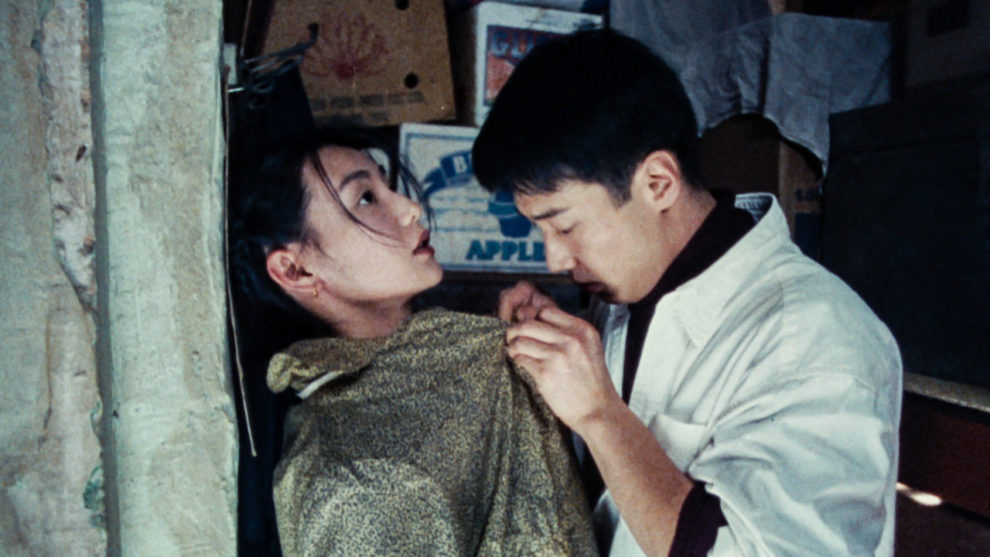By Kun-Yu Lai
“Comrades: Almost a Love Story” is director Peter Chen's best work, and is not just a simple love story. It also talks about the imagination of self identities in this diverse society.
Buy This Title
In 1985, Hong Kong's development is booming. Lots of immigrants come to the city to find a better chance of making a living. The main character, Li Xiao-jun (Leon Lai), who was born in China, also moves to the city. He wants to make enough money to marry his girlfriend, Fang Xaioting, in his hometown. While he struggles in living in the big city, he encounters another girl, Li Qiao (Maggie Cheung), who is also from China, with similar background.
They become best friends because they are the only ones who support each other in this foreign metropolis. The close friendship turns into an ambiguous love, without them even noticing. When they realize they have feelings for each other, their relationship has already turned sour. Xiao-jun doesn't want to betray Xiaoting, so he invites her to come to Hong Kong. Qiao finds another man, Pao, who also loves her deeply. Both of them want to end this feeling of love, but their bonds seem to remain.

The Chinese title of this film 甜蜜蜜 is a hit song sung by Teresa Tang, who was the greatest singer in East Asia at that time. The period of the story line is exactly when Teresa Tang reaches the highest point of her singing career. Combining this love song with other Teresa Tang's greatest hits, this film brings a sense of nostalgia to the audience. What's more, these songs become a channel to convey the characters' feelings. Without a word, the music completely expresses their happiness and regret.
What is most important, Teresa Tang's theme song is an identification that helps Xiao-jun and Qiao build up their relationship. Li Qiao says that only people who were born in mainland China love Teresa. In other words, Xiao-jun and Qiao know they are similar because of the songs. Whenever her song is played, both of their hearts deeply connect to each other.
Although they feel deeply connected due to the songs, they choose different types of self identification. Just like American dreams in Hollywood, they also have their dreams in Hong Kong. Xiao-jun wants to marry his fiancée, and Qiao wants to be a real rich Hongkonger. So, one shows his traits of being a Chinese, the other desperately learns everything about Hong Kong. The differences between their souls make them suffer. Their traits makes this love to be imperfect from the start, and easily attracts the audience's heart.
Choosing to be a Hong Konger or not is a crucial question for the roles in this film, and it's also important for the immigrants in real life. The decision of self identification injects this romantic film with deeper issues to discuss. Whether choosing to be native or not, the choice is accompanied with difficulties in the real world. And the difficulties make the relationships in this film so heartbreaking.
With Teresa Tang's songs and immigrant culture, “Comrades: Almost a Love Story” sincerely presents the true face of Hong Kong at the time. It's a film that would only happen in Hong Kong. What's more, it's a love letter to Hong Kong.
The story ends on May 8th 1995, the date Teresa Tang died. It's not just the day when the story comes to end, it also means the end of an era. Through the talks from pedestrians, this movie tries to tell the audience that this society is no longer the same. All we can do is to say goodbye to the beautiful era in Hong Kong.
















